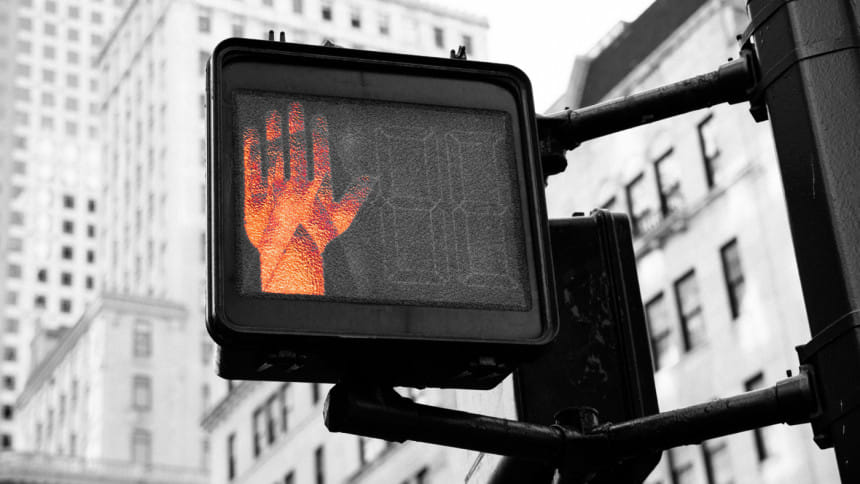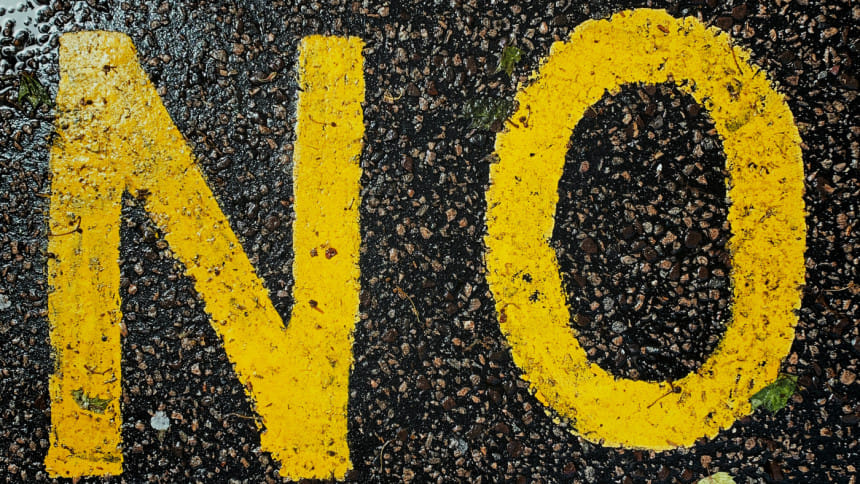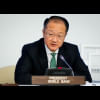Learn why saying ‘no’ is the most selfless act

What if the very definition of a 'good woman' — being endlessly nice, selfless, and agreeable — was actually holding you back? "Be nice, be good, be kind!" was a powerful mantra, reinforced by women in my family. So, when artist Judy Chicago, our commencement speaker, declared, "Remember, you cannot have it all in life; you have to choose," I disagreed. If I could just say yes to everyone, I'd be happy and have everything.
Soon after my son's birth, that fantasy crumbled. My work, social and personal lives buzzed. But an alarm blared in my head; I was faltering with my commitments. Often double-booked, desperate to be the person who everyone loved, who never uttered that tiny, terrifying word. My stark realisation; something had to give. I was failing to deliver, and I was failing myself.
Embracing the Unapologetic "No"
It was clear: I needed a radical intervention. I embraced a very foreign concept, self-care — it felt akin to joining a secret society. Before committing to anything new, I started asking myself: "Would this actually make my life better?" If the answer was a resounding negative, then it was time to say 'no.'
It wasn't easy. I swear, I felt physical pain; my stomach churned, my palms sweated. I adopted a two-step strategy. First, the classic deferral, "Let me check my calendar" — this bought crucial time to hyperventilate privately. Then, the email or WhatsApp: "I'm so terribly sorry, but I have to regretfully decline." Slowly, the discomfort melted away, and my 'no' morphed from a mumbled apology to a clear, confident boundary. As Sylvia Plath observed in The Bell Jar, "It never occurred to me to say no." Her words depict being swept along, making the liberation of even a hesitant 'no' feel deeply significant.

Saying 'no' for me will always be connected to Judy Chicago. Years after hearing her speak, I saw her phenomenal work, The Dinner Party, at the Brooklyn Museum. This ground-breaking installation is a defiant 'no' to the historical erasure of women from art, history, and culture. It's a refusal to accept the status quo where women's achievements were overlooked or trivialised. The Dinner Party highlights women with remarkable achievements despite societal constraints. Many implicitly or explicitly said 'no' to the relentless demands of traditional female roles, strategically carving out space for their ambitions.
Prioritisation was crucial when my son's kindergarten teacher called, concerned he was struggling with reading and writing. All the 'noise' of my overscheduled life instantly faded. I said no to every dinner invitation and casual hangout. Beyond my work, my world narrowed down to a singular focus: getting him up to speed. I worked closely with his teachers, diligently practicing with him every evening. It was a powerful, first-hand lesson in how fiercely we must cut out non-essentials to zero in on what matters.
My career's pivotal 'no' came a few years after moving back to Bangladesh. I received what seemed like an incredible job offer: setting up an impact business in skill development with foreign investments. It was an amazing learning experience, enabling me to build from the ground up — a skill that has since allowed me to launch other ventures. However, after the initial excitement wore off, the work became mundane. It no longer served my purpose of professional growth. Despite a deliberate 'no,' I acted responsibly, giving four months' notice to ensure a smooth transition and find a replacement.
The Gift of "Me-Time" and Boundaries
Saying 'no' freed me up to have time for myself: a magical space for self-care. I started walking ten to twenty thousand steps a day. Just walking. Making myself a priority wasn't selfish; it was the biggest gift to myself. With this lifestyle change, I was drawing boundaries. Even with beloved friends and family, those wonderful humans who often unknowingly demand so much. If I had other priorities, I'd let them know. If a certain behaviour rubbed me the wrong way, I gently distanced myself.
It felt liberating, almost like a superpower. I was feeling like Ganga from the Mahabharata, the river goddess who famously chose to leave if things didn't go her way. Similarly, I walked away, and set my own terms. Some might have whispered my actions were 'selfish' but in the long run, I transformed into a more content individual. My new-found peace meant sharper focus and greater productivity. As Gloria Steinem wisely reminds us, "Once we give up searching for approval, we often find it easier to earn respect." This is the secret of 'no' — it's about ditching the approval-seeking game for genuine self-respect.
Passing on the "No" Superpower
Now, my mission extends to my son. He's a kind boy, always going the extra mile to help his classmates. I beam with pride at his compassion. But I also know the importance of teaching him to draw his own lines in the sand. True empathy isn't about perpetual self-sacrifice; it's about nurturing your own well-being so you can genuinely be happy, well-resourced, and from that strong place, help others effectively. My transformation began with wielding that short yet powerful word: 'no.' It's a word that doesn't shrink us; it defines us, carving out the space we need to thrive. This profound truth echoes through history in the lives of incredible women who dared to defy expectations.
One such figure is Nawab Faizunnesa. She was the first and only female 'Nawab' within the British Raj. She fiercely refused to move to her husband's land, asserting her autonomy against patriarchal norms. Later, she even boldly declined a condescending offer to the title of Begum from the Queen of England, insisting on her own worth. Her story inspires us to embrace that mighty word to set us free.
The writer is Partner, Snehasish Mahmud & Co., Chartered Accountants, and Founder, HerStory Foundation and CholPori

 For all latest news, follow The Daily Star's Google News channel.
For all latest news, follow The Daily Star's Google News channel. 








Comments